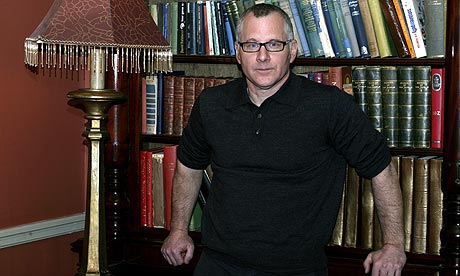 In this edition of the Film Round-Up: We go to the art house and the multiplex. What were the highlights? Read and see and comment if you'd like.
In this edition of the Film Round-Up: We go to the art house and the multiplex. What were the highlights? Read and see and comment if you'd like.
As always these reviews previously appeared in ICON and are reprinted with permission. (Thanks, Trina.) Father of My Children (Dir: Mia Hansen-Løve). Starring: Louis-Do de Lencquesaing, Chiara Caselli, Alice de Lencquesaing, Alice Gautier, Manelle Driss, Eric Elmosnino. Workaholic producer Grégoire Canvel (de Lencquesaing) struggles to save his film production company, Moon Films, from financial ruin. Weekend getaways with his wife and three daughters provide a brief respite, but it may not be enough to save his beloved company or himself. Inevitably, a tragic event forces everyone in the Canvel family to readjust. What makes writer/director Hansen-Løve's effort so refreshing is that she painfully and accurately portrays a family enduring the early stages of a personal crisis, refusing to offer us a revitalizing catharsis or a satisfying conclusion. She gives us a heaping dose of life with no chaser, so we constantly pay attention to where these characters are heading and how little events and actions will influence them. The lack of cinematic contrivances makes
Father of My Children lapse into the occasional stretch of boredom, but it keeps the movie authentic. [NR] ***
To Age or Not to Age (Dir: Robert Kane Pappas). Documentary filmmaker Pappas explores anti-aging research that's emerged since the early 1990s. The topic of eternal life, or even extending the average lifespan by 50 years, is rife with moral and philosophical issues. Too many issues, actually, which cripples the film: Pappas never chooses a focal point. We're flooded with information and opinions, but we're left wondering what's truly important in this debate. This isn't helped by the movie's narrative structure, which is wobbly and presented with no visual flair. Sometimes we hear from regular folks. Sometimes we hear from doctors and researchers in sit-down interviews. Sometimes Pappas offers his own out-of-nowhere observations. If Pappas had gone with a first-person exploration of this giant topic and its side discussions—similar to what Roger Nygard did in
The Nature of Existence—or resorted to a straightforward, information-driven report, perhaps
To Age or Not to Age wouldn’t have the sizzle and impact of an educational filmstrip. [NR] **
Now, here's a look at two movies that have recently raked in at the box office.Grown Ups (Dir: Dennis Dugan). Starring: Adam Sandler, Kevin James, Chris Rock, Rob Schneider, David Spade, Salma Hayek, Maria Bello, Maya Rudolph. Five friends and their families reunite for a long weekend in the New England woods after the death of the guys' youth basketball coach, setting the scene for closure and life lessons. All the trimmings associated with the Sandler comedy (e.g.,
Anger Management,
The Longest Yard)—the broad humor, the testosterone-laden riffing—are severely compromised by a story that includes the pathos of every reunion drama since
The Return of the Secaucus Seven. Two problems with that approach: This is the last group you want exploring that territory, especially when your best actors (Bello, Rudolph) are benched; second, the dramatic elements are so superficial and resolved so speedily that they come across as a desperate attempt to legitimize the buffoonery. Sandler made his mark by employing renegade stupidity in movies like Happy Gilmore. His gradual domestication may have translated into big bucks, but it's produced mildly entertaining movies that are comfortable, predictable, and devoid of originality.
Grown Ups is just the latest franchise in Sandler's corporate comedy empire. [PG-13] **
Toy Story 3 (Dir: Lee Unkrich). Featuring the voices of: Tom Hanks, Tim Allen, Joan Cusack, Ned Beatty, Michael Keaton, Don Rickles, John Ratzenberger, Wallace Shawn Estelle Harris, Bonnie Hunt, Timothy Dalton, Blake Clark. Latest effort from animation giant Pixar (
Up,
The Incredibles) tells another spellbinding adventure about the come-to-life toys, who are again led by affable cowboy hero Woody (Hanks) and stoic space warrior Buzz (Allen). This time, the toys react to their longtime owner heading to college and possibly forgetting about them forever, setting in motion a journey that involves a stint at a draconian day care center headed by a duplicitous, honey-voiced purple bear named Lotso. It's getting harder and harder to write about Pixar's efforts without sounding like a publicist or a raving lunatic fan. The song remains the same:
Toy Story 3 blends inventive storytelling, first-rate voice work (especially Beatty as Lotso), and a staggering emotional depth to produce an experience that rivals the imagination and wonder found in a children's storybook. And, yes, there's an excellent chance you will cry. Michael Arndt (
Little Miss Sunshine) wrote the screenplay. [G] ****





